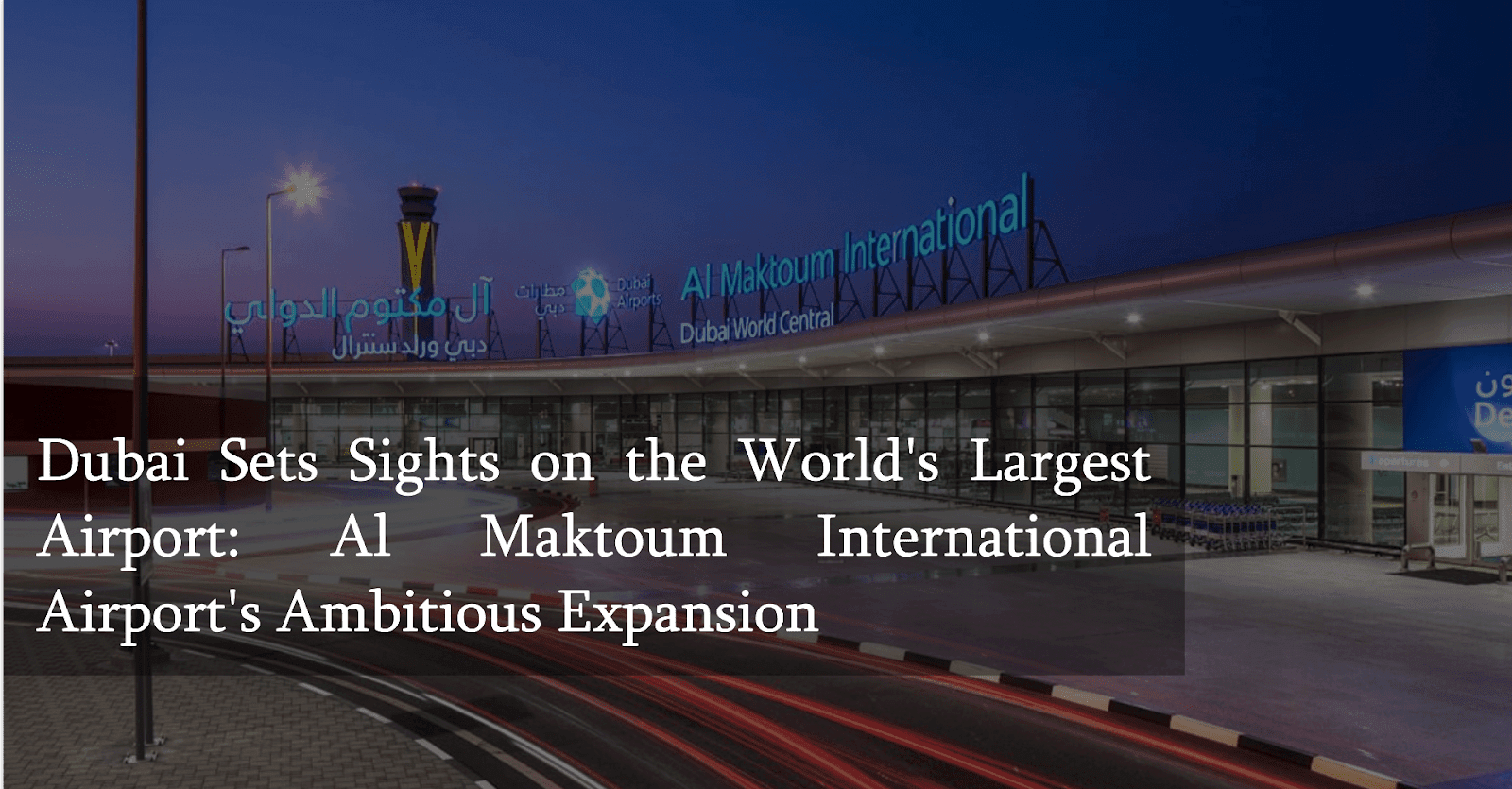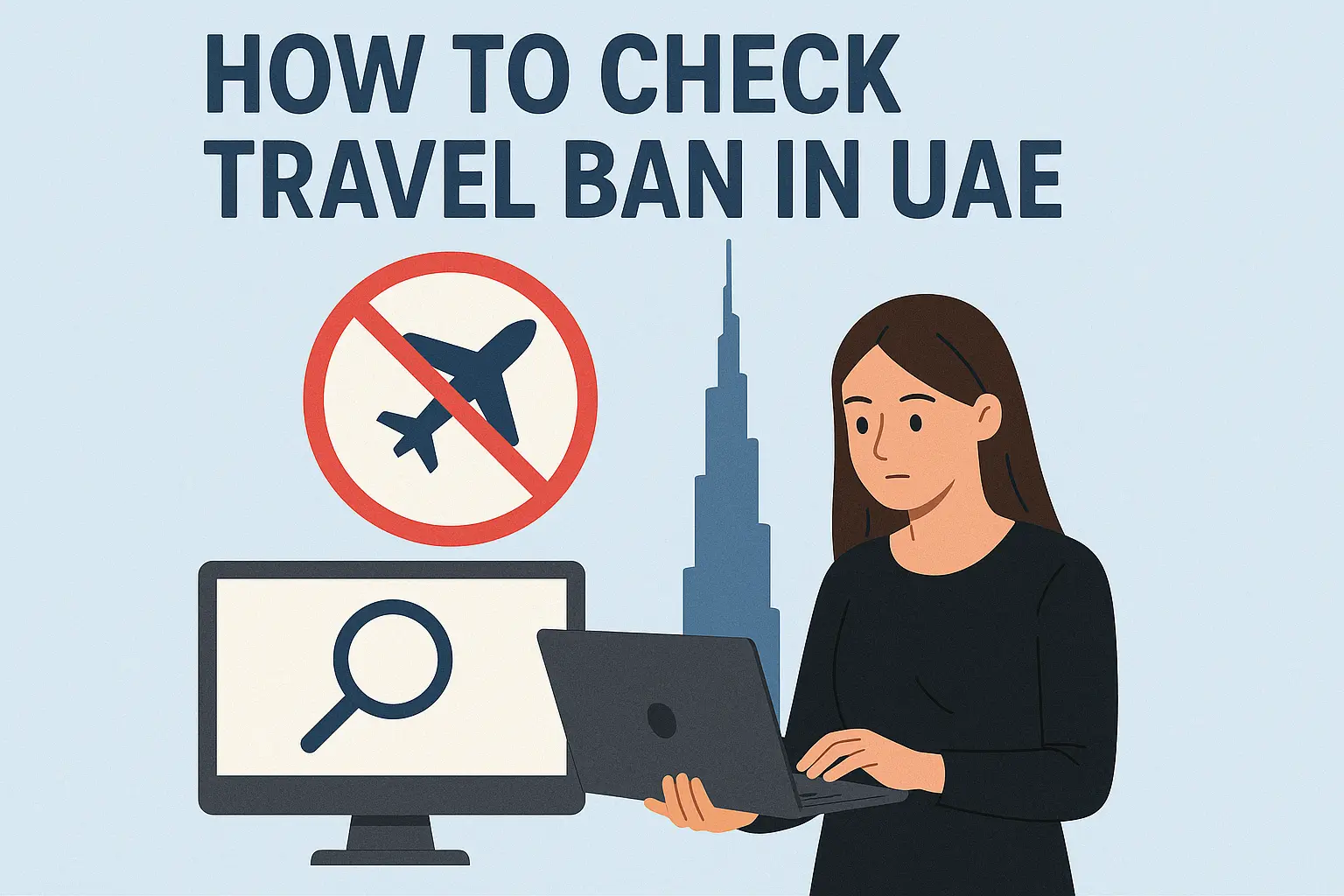Get ready for a travel hub unlike any other! Dubai, the city of innovation and extravagance, is setting its sights on a record-breaking achievement: transforming Al Maktoum International Airport into the world’s biggest airport.
This blog delves into the details of this ambitious project, exploring its potential impact on global travel and the future of Dubai as a major aviation centre. We’ll uncover the airport’s planned capacity, the timeline for this mega-development, and how it might revolutionise your travel experience.
So, fasten your seatbelts and join us as we explore the future of air travel at Al Maktoum Airport!
A Vision for the Future
Fast forward a decade from its 2013 opening, DWC still hasn’t quite taken off as envisioned. While it serves cargo operations, MRO (maintenance, repair, and overhaul) services, and a limited number of low-cost carriers, it hasn’t reached its full passenger capacity potential.
The original plan was nothing short of awe-inspiring: a futuristic mega-hub handling a staggering 160 million passengers and 12 million tonnes of cargo annually. This dwarfs the current busiest airport, Hartsfield-Jackson Atlanta International, by a significant margin.
About Al Maktoum International Airport

Dubai World Central (DWC), or Al Maktoum International Airport, has its sights set on becoming the world’s biggest airport. This expansion isn’t just about flights – it’s about transforming DWC into a global transportation hub.
A tweet from Dubai South hints at a grand vision: seamlessly connecting air travel with land and sea routes. This ambitious project goes beyond the airport, incorporating a business-friendly free zone and offering a variety of housing options.

A Modular Approach for a Mega-Airport
Although we don’t know exactly when it will happen, there are some interesting clues about the future of Dubai World Central (DWC) airport. It looks like they’re planning to use a modular approach, which means they can add on to the airport gradually over the next few decades. This approach might even continue into the 2050s.
After a pause due to the pandemic, talks are back on track to resume construction at Al Maktoum International Airport. This is great news because travel is picking up again – Dubai International Airport saw 66.1 million passengers in 2022, and Dubai expects even more with a full recovery to pre-pandemic levels by this year.
The focus right since last year was restarting a key part of the project: a $2.7 billion contract to build the foundation (substructure) for Concourse 1 and the West Terminal building. This includes important channels like tunnels, baggage handling systems, roads, and other support facilities needed for the airport to function.
Blueprints for the Airport
Officials are also working on the designs for this futuristic mega-airport. While a massive three-dimensional scale model with six parallel runways and three enormous terminals was showcased at the 2023 Dubai Air Show, it’s important to note that this may not be the final design.
We can expect the actual airport to be even more cutting-edge, reflecting Dubai’s reputation for innovation.
The CEO of Dubai Airports, Paul Griffiths, also has some big ideas for the airport. He wants to completely change the way airports are designed. Instead of big, crowded spaces, he envisions a more intimate airport that gets rid of all the old-fashioned processes that have caused problems for travellers in the past.
This futuristic vision fits perfectly with Dubai’s reputation for being at the forefront of innovation.

DWC: The Centrepiece of a New City
DWC isn’t just about the airport itself. It’s the heart of a much larger project called Dubai South. This ambitious scheme envisions an entirely new city built around the airport, encompassing a massive 145 square kilometres of desert. This “aerotropolis” will feature eight distinct neighbourhoods, each catering to specific industries and activities, alongside residential and commercial areas.
The Mohammed bin Rashid (MBR) Aerospace Hub will play a key role in this vision, fostering Dubai’s burgeoning aviation and aerospace industries. The recently announced $950 million Emirates engineering centre exemplifies this commitment.
The ultimate game-changer for DWC will likely be the relocation of Emirates, Dubai’s giant airline, and its partner, flyDubai. While a timeframe for this move hasn’t been announced, it signifies a strategic shift for Emirates, responding to the evolving global air travel market.
The Takeaway: A Global Hub in the Making
Dubai’s vision for DWC is not just about claiming the title of the world’s largest airport. It’s a strategic move to solidify Dubai’s position as a global trade and tourism centre. With a focus on innovation, a modular development approach, and its role within a larger metropolis, DWC is poised to become a true aviation hub of the future.
The next decade will be crucial in watching this ambitious project unfold.







